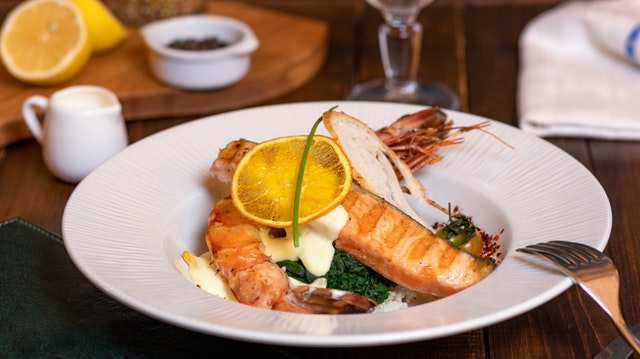There are many pseudo-scientific solutions out there claiming effortless weight loss, from breakfast bowls to harsh juice cleanses. This foresight often leads to anger and dissatisfaction. However, what if the key to achievable weight management was not a single magic food? Sarah Thomas, who works as a Registered Dietitian, disagrees with the myth that there’s a one-size-fits-all snack and shares a more sensible view.
“Although some snacks are more supportive than others, if you pay attention to just one food, it reduces your options and fosters your failure,” says Thomas. The trick is to know what makes a snack good for losing weight and start with that.
In short, what makes a great snack for you if you are trying to lose weight? Here’s the winning formula
- Protein Power
Proteins are like building blocks of your body, and they help keep you full for longer. This avoids craving and mindless snacking throughout the day and therefore fewer calories are taken in. Try to get your snacks to have around 5-10 grams of protein. Think Greek yogurt with berries, almonds, or even a hard-boiled egg.
- Fiber Fiesta
Another satiety superstar is fiber. It makes your diet more voluminous, which in turn slows down digestion and helps achieve the sensation of fullness. This helps you eat less overall and makes you feel full for longer periods, thus making you burn more calories than you consume. Go for fruits whose skin can be eaten (apples, pears) or vegetables that have a crunch (carrots, bell peppers) or even a sprinkle of chia seeds.
- Portion Perfection
Bear in mind that mindful portion control is extremely powerful. Even healthful snacks can become caloric if you eat too much of it. Plan your snacks the night before by portioning them into single-serving containers, or by using a small plate to avoid overindulgence, which can hinder your weight loss.
By incorporating these elements, your snack becomes an active contributor to your weight loss goals
- Reduced Calorie Intake
Being satiated for a long time because of protein and fiber amounts to less calorie intake on the entire day. You just don’t need to grab those extra snacks and second helpings because your body is already full.
- Curbed Cravings
Protein releases hormones that reduce appetite, and fiber keeps your digestive system running smoothly. It is a perfect blend of the two that brings the cravings under control and prevents blood sugar spikes, which can lead to unhealthy snack intake.
- Increased Metabolism
Although not a cure-all when it comes to burning calories, increased lean muscle mass through protein ingestion can add a little to your metabolic rate. This simply indicates that more calories burn at rest, not only when you are actively exercising.
Snack Inspiration, Not Restriction
Here are some snack ideas that tick all the weight-loss-friendly boxes
- Hummus and veggie sticks
This is a good example that provides one with fiber from vegetables, protein from hummus, and the healthy fats that keep you full.
- Apple slices with almond butter
This low-calorie, high-fiber, and high-protein combo is sure to keep you energized throughout the day while satisfying your craving for tasty food. Satiety is increased by the healthy fats in almond butter as well.
- Edamame
These tiny green peas are an excellent source of protein and fiber from plants making them a nutritious and convenient snack. Moreover, they are their own natural portion-controlled packages!
- Cottage cheese with fruit and a sprinkle of granola
Cottage cheese is a protein powerhouse, and the fruit and granola add fiber and sweetness. This could be a suitable breakfast choice or a great afternoon snack.
Developing a Sustainable Approach
Though these snacks can be useful, they just make up one part of the picture. Here are some additional tips from Sarah Thomas for long-term weight loss success
- Focus on a Balanced Diet
Try to fill your plate with a wide range of nutrient-antecedent foods from all food groups throughout the day. This will ensure that your body is receiving the vitamins, minerals, and fiber required to function well. Avoid phobia of good fat and complex carbohydrates – they are a fundamental element of a balanced diet.
- Regular Exercise
Regular exercise is particularly important for weight loss and general health. It helps you lose calories and gain muscle, which in turn increases your metabolism. Find a form of exercise that you love and then stay committed to it. Regardless of whether it’s a brisk walk, a dance class, or a weights training, it is vital to be consistent.
- Mindful Eating
Listen to your hunger and satiety signals carefully. Eat slowly and relish your food. Do not let screens disrupt you from being aware of what and how much you’re eating. Being attentive to your body’s signals will help you eat intuitively and prevent you from overeating.
- Stay Hydrated
Drinking enough water can make you feel full most of the time and reduce your calorie intake. At times thirst might be confused for hunger, which is why a drink of water will often help to eliminate cravings before snack time. Strive to drink eight glasses of water daily, but make the amount suitable to you and your particular needs and activity.
The weight loss process is a journey, not a destination. You can make a big difference by incorporating small, sustainable diets and lifestyle changes to achieve your goals and maintain a healthy life. No magic formula exists; however, if you prioritize wholesome food, regular exercise, and good practices, you are sure to build a sustainable way of managing your weight while improving your long-term well-being.

